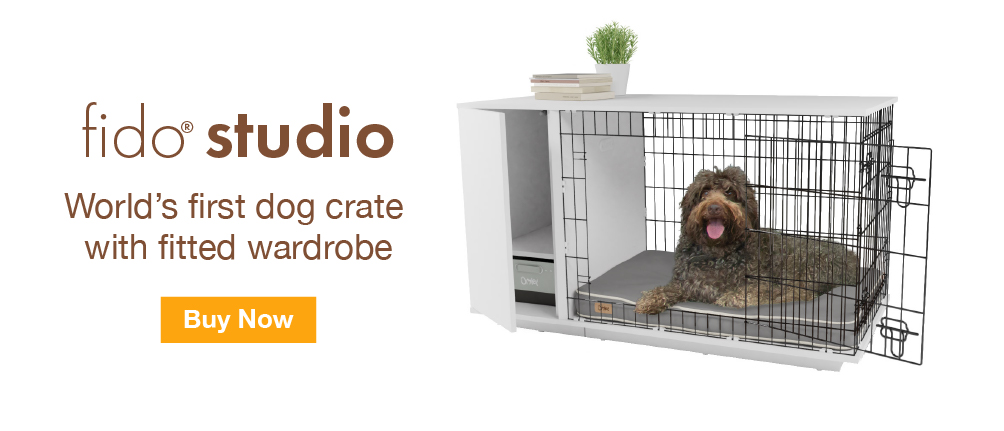A pedigree dog is one that has purebred parents of the same breed. In the US, these dogs are registered with the American Kennel Club (AKC). There is a large number of pedigree dog breeds, from chihuahuas to the Irish wolfhound, demonstrating the centuries of selective breeding, resulting in the incredible diversity of the Canis familiaris.

King Charles spaniel enjoying their time on the Omlet Nest dog bed in Honeycomb Pollen.
Advantages of owning a pedigree dog
Behavior predictability
The main advantage of owning a pedigree dog is the relative predictability. In spite of differences in individual character, genetic traits are still fairly fixed in pedigree dogs. For example, Border collies were originally bred to herd, which is reflected in their high energy and highly intelligent personalities that we still see today.
Appearance predictability
It’s just not behavioral traits of pedigree dog breeds we can predict, but also their appearance and size, unlike crossbreeds. Perhaps you’re looking for a dog that’s very energetic or one that doesn’t require much grooming. Choosing a pedigree can make this initial decision a lot easier for you.
Breed guidance
You’ll also be able to find lots more specific guidance for pedigree breeds. And whilst the fundamentals of dog training remain the same, knowing your dog’s breed can help you to better understand what drives them most. beagles, for example, are very food motivated, whilst other breeds respond better to dog toys whilst training.
Disadvantages of owning a pedigree dog
We’ve established the advantages of owning a pedigree dog but that doesn’t mean they don’t come without potential issues. These might not, however, be a problem for you and your family.
Money, money, money!
The upfront cost of any pedigree dog is a lot of money. Purchasing a pedigree puppy from a reputable breeder can set you back thousands of dollars and in 2011, one Tibetan Mastiff was even bought in China for 10 million yuan – that’s about $1.5 million! Dog breeds such as French bulldogs and the samoyed are amongst some of the most expensive but it’s not just the initial payment that can be pricey.
Hereditary problems
Whilst you might like the look of a particular dog, it can come at a cost. The consequences of some pedigree dogs are hereditary diseases, often associated with the desired physical trait that the dog has been bred for. For example, Welsh springer spaniels are prone to glaucoma and hip dysplasia. Dalmatians are prone to hip dysplasia too, along with urinary stones and seizures. All the “flat-faced” breeds, including the popular pug, suffer breathing problems caused by restricted airways. Treatment isn’t always affordable, not to mention the dog’s potentially poor quality of life.
Antisocial behavior
Some pedigree traits, useful when the dog was being developed centuries ago, aren’t quite as desirable as they once were. Think along the lines of the baying of a foxhound or the howling of a Siberian husky. It’s important to thoroughly research the breed you think you’d like before making a decision so that you can find the dog with traits best suited for you and your lifestyle and the dog’s best interest at heart.
Omlet and your dog
At Omlet, we’ve designed products to suit the needs of every dog. From our ingenious dog beds in a range of sizes to our dog crates, perfect for offering a secure and safe sanctuary, and dog toys for those who love to play. Whether you decide on a puppy from a reputable breeder or an older rescue dog, Omlet has what you need to help you along this exciting journey.





Comments
An Omleteer, 28 April 2020
Adopt, dont shop!